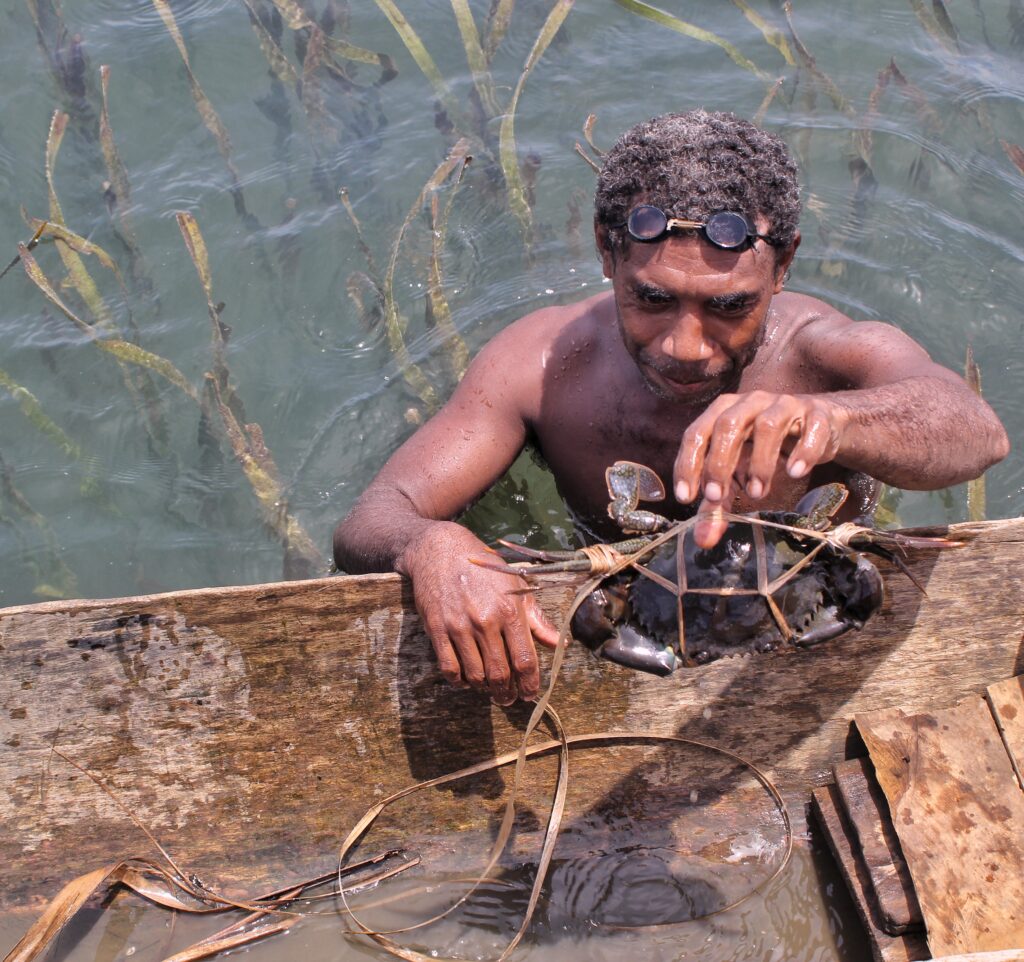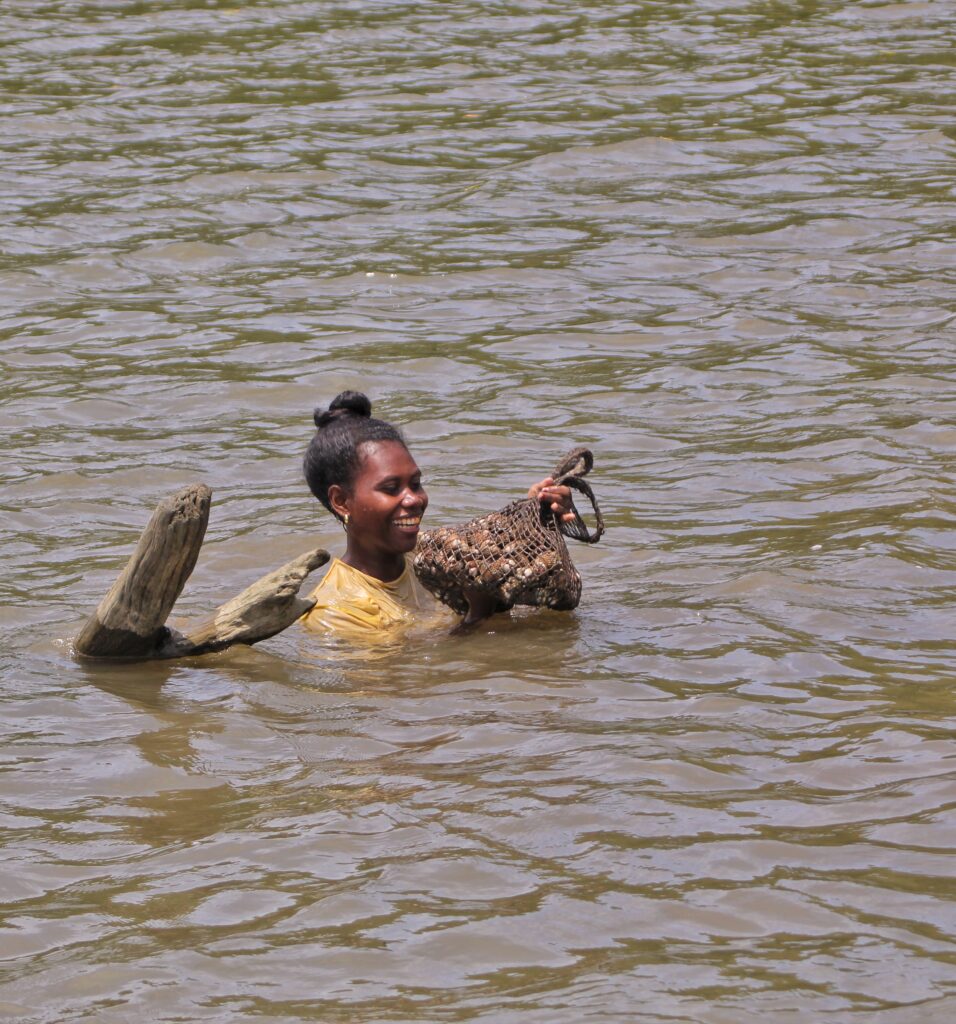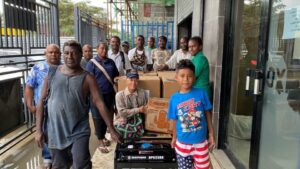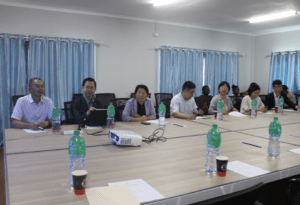THE Network for the Indigenous People Solomons (NIPS) on the 5th of January 2022 successfully held a one-day workshop in Kosisi village, Hograno district in Isabel province.
The project “Support community-based protocols for maintaining Biocultural system, food security and gendered ways of knowing the pacific”. A project funded by Snowchange Cooperative for the (Oceans- Wide Relief Project).
Developments in terms of logging operations have made the Kosisi Community experience deterioration in its traditional knowledge system of protocol for maintaining bio-cultural systems, food security, and gender ways.
Najaghu is one of their daily protein and one of the main dishes used during special occasions and gatherings in the community. The people have been using traditional knowledge systems of protocols for generations like ‘taboo’ to conserve these shells in certain areas.

The community’s rules of taboo sites (conservation sites) have been weakened, these have been raised during the workshop. It was highlighted during the workshop that some of the traditional knowledge system protocols are slowly deteriorating due to logging operations occurring within Thousand-ships bay where the Kosisi community is located.
The workshop empowered and encouraged Kosisi Community to revive some of their traditional knowledge system of protocols and promote respect for chiefs, elders, women, men, girls, underrepresented and diverse groups.
In terms of gender, women, girls, and diverse groups which depend very much on crabs, fish, and mud shells for livelihood and income have been victimized due to changes that took place in the logging operations.

Some of the logging and mining operation sites located in the Thousand-ships bay in Bugotu and Hograno District in Isabel Province may lead to marine pollution and also destroying, reefs and seagrass ecosystem where mud shells, crabs, fish, and other marine species live.
If such activities continue it will affect the livelihood and food security of the Indigenous Peoples and local communities living within the community.
The Kosisi passage surrounded by seagrass beds and Mangrove forest are rich in food sources and are normally conserved for a few months or years using traditional knowledge system of protocols for special occasions and gathering.

A meeting will be held with the community and the logging group and Face-to-face interview to support the Kosisi Community to regain and document its Community Traditional knowledge protocols in order to ensure the maintenance of cultural systems, food security, and gendered ways are upheld.
NIPS is currently engaging with the Kosisi community with Snow Change Cooperative on the Oceans-Wide Relief project with the theme – Support community-based protocols for maintaining biocultural systems, food security, and gendered ways.
(Article by NIPS Comms)




